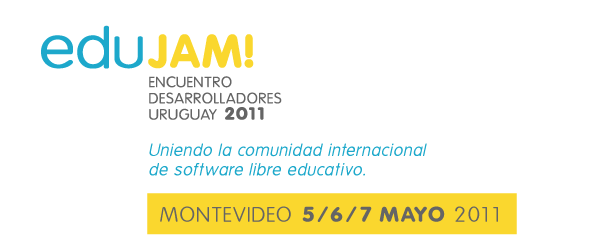This week a team led by Uruguay’s ceibalJAM! (including Gabriel Eirea, Pablo Flores, Gonzalo Odiard, Fernando Sansberro, and Andrés Ambrois) and including Walter, Adam, Christoph, and David Farning, made progress in organizing an education hacking summit in Montevideo, Uruguay.
The name of the event will be eduJAM! 2011 and will take place from Thu May 5 to Sat May 7. Please include the eduJAM! and ceibalJAM! logos below if blogging or writing about the event.
The main objective of the summit is to strengthen the free educational software developer community, with a focus on Latin America and the Sugar + olpc communities. The event will feature discussions around future directions and strategy, hacking on specific projects, and exchange of experiences among different deployments. Â The event is being planned in more detail on the sugarlabs wiki.

Registration is not yet open. Â Alongside the eduJAM! a couple of extra activities are being planned to make the most of the attendees gathering for the summit (we already know of people from 10 countries who will be there):
A “Conozco Uruguay Tour†is being organized by members of volunteer group RAP Ceibal and the OLPC community, between Sat April 30 and Thu May 5.
There will also be a Sugar code sprint starting Sunday May 8, right after the summit, expected to continue to Monday May 9 if not beyond!

Sponsors are welcome; Activity Central has already offered to be a sponsor, and the organizers are looking for other sponsors both at the national and international level. Â We hope you can join us and are looking forward to your comments and suggestions!


